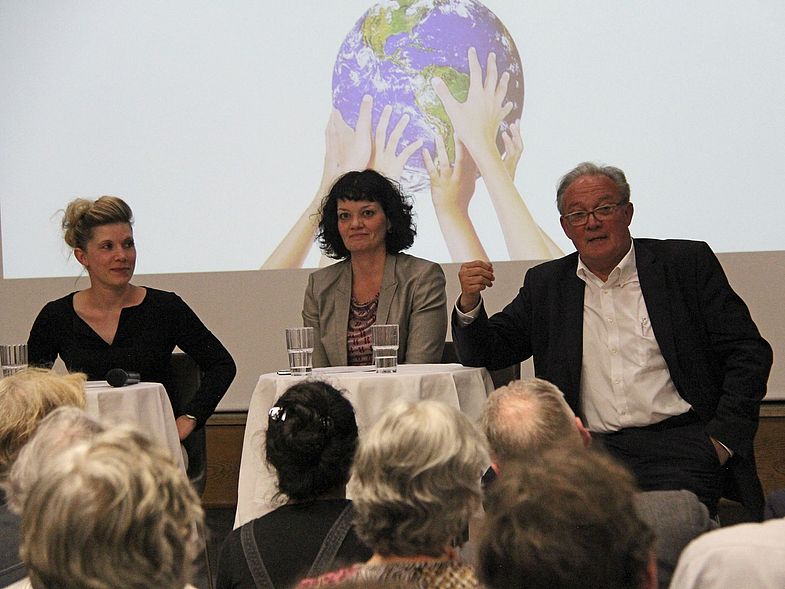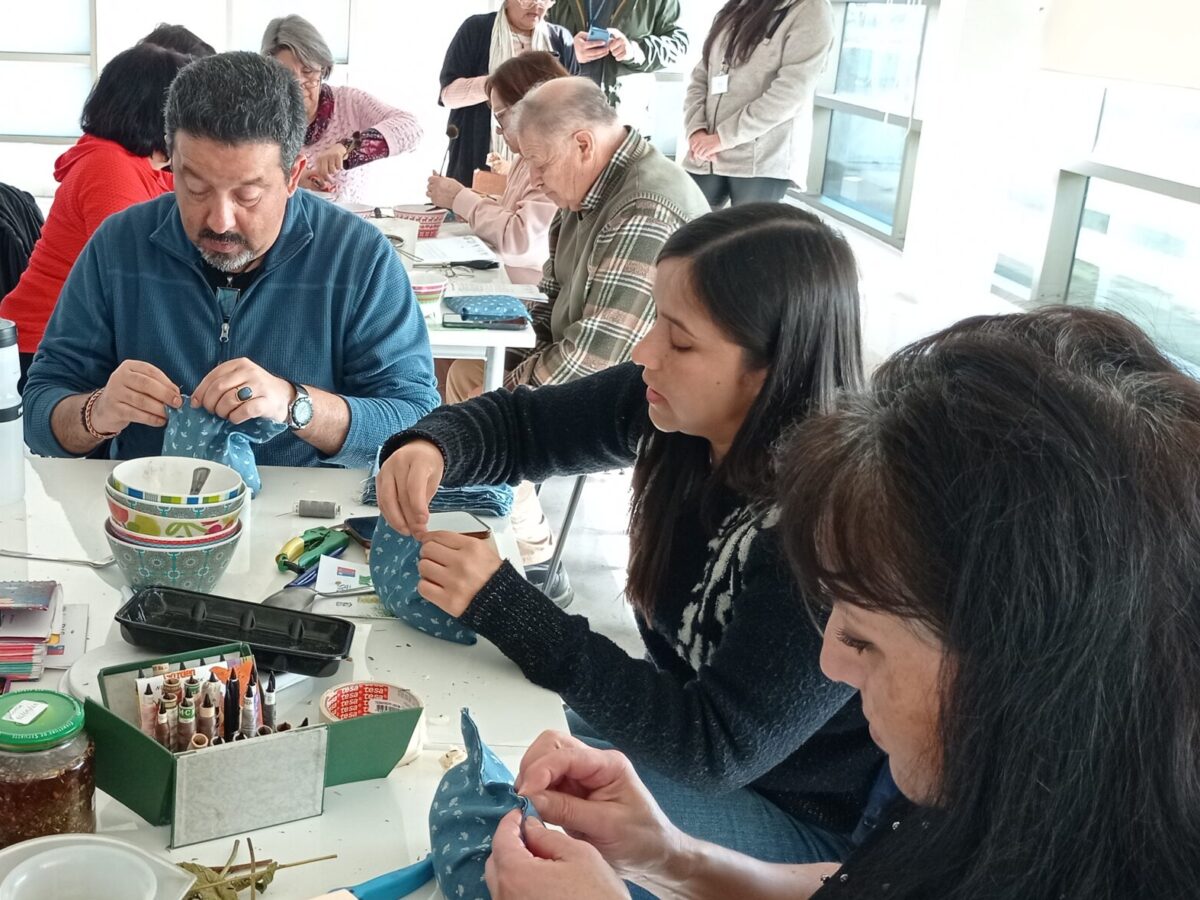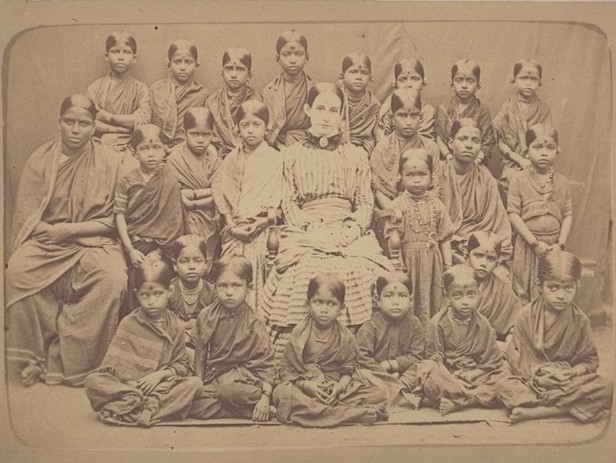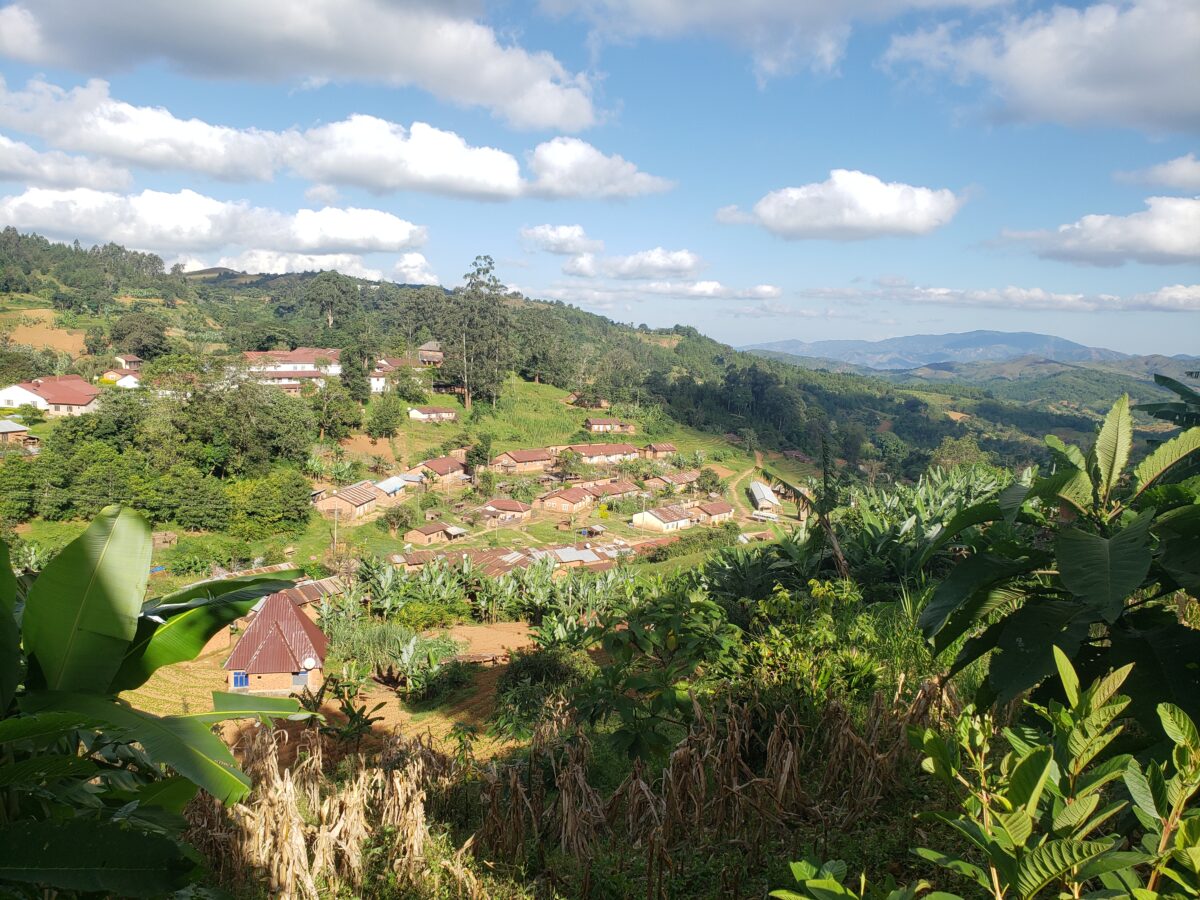This time, the topic of health was at the forefront of Mission 21's Dialog International series of events. The numerous guests were introduced to the topic by Linda Ratschiller's well-founded lecture on the health concepts of the Basel missionaries around 1900. For not only the minds, hearts and souls of the Africans were to be healed through the Gospel, but also the body. The gifted speaker Marcel Tanner then led back to today. The former director of the Swiss Tropical and Public Health Institute, Swiss TPH, shared his vast wealth of experience in fighting malaria and other infectious diseases in Africa.
Basel missionaries shaped ideas of hygiene and tropical medicine
Linda Ratschiller conducted intensive research in the archives of the Basel Mission, as part of the National Fund project "Hygiene Abroad and at Home. The Basel Mission Doctors and Spaces of Knowledges 1885-1914." It dealt with hygiene concepts of the missionaries in the British crown colony Gold Coast (parts of today's Ghana) that emerged around 1900. Hygiene is one of the central dimensions of colonial culture and was thus also a topic of the missionaries. In their texts, for example, they refuted the common notion at the time that black people were dirty; rather, they possessed a pronounced need for cleanliness.
The Basel missionaries also helped shape the new field of tropical medicine. Many of them died of the so-called "tropical fever," so they began researching it early on. The missionaries participated actively in the scientific debate in Europe. They established themselves as recognized experts in tropical medicine, since they were able to gain direct on-the-spot experience with the diseases. The first German-language monograph on tropical diseases was then also written by the missionary physician Dr. Rudolf Fisch on the Gold Coast. Ratschiller also emphasized that there was a lively exchange of knowledge on tropical diseases involving European and African actors.
A partnership and holistic approach
Emeritus Professor Marcel Tanner emphasized the importance of shared learning to bring about change in health care: "Good partnerships are extremely important!" The best drug is of no use if there is no exchange with the people on the ground: "Pure research in the laboratory is of little use without knowing the sociocultural and socioeconomic situation of the people who subsequently receive the drugs." For example, it often happens that a drug is discontinued as soon as the health condition improves, instead of adhering to the duration of use. The medication is kept in case the person becomes ill again, he said. This shows how lack of application knowledge and poverty play a huge role in fighting disease.
Tanner therefore advocated a holistic approach to healthcare. Successes occur when - as at Swiss TPH - research, training and implementation are combined. "Great improvements in health care in Africa are indeed possible," said Tanner, and demonstrated this with the example of Tanzania. Here, there are long-standing partnerships with Swiss TPH. Tanzania increased its health spending by one U.S. dollar per capita per year to improve health management. Today, 120,000 fewer children under the age of 5 die each year as a result.
Lively discussions
At the end, the audience was able to ask burning questions. Tanner answered, for example, why malaria is almost absent in Europe, even though the mosquito that transmits the disease also exists here. Ratschiller pointed out that the term tropical medicine is not quite correct. Diseases in the tropics can also occur in Europe. The subsequent aperitif offered another well-used opportunity to exchange ideas with the speakers and to discuss our health care.
Mission 21 is involved with programs in the area of health in Tanzania, Ghana, the DR Congo and Cameroon as well as with a Continental HIV Program for Africa.
Text & Photo: Eva Sidler






